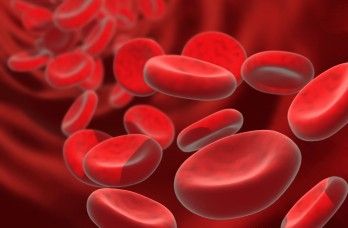Bridging Radiotherapy Prior to CAR T May Be Safe in R/R Multiple Myeloma
The addition of comprehensive bridging radiotherapy to extramedullary disease sites before CAR T therapy may improve PFS outcomes in multiple myeloma.
Data from the trial revealed that among 19 patients treated with bridging radiotherapy prior to CAR T-cell therapy, no grade 3 or higher toxicities were observed related to the use of bridging therapy.

Comprehensive bridging therapy administered prior to anti-BCMA chimeric antigen receptor (CAR) T-cell therapy exhibited safety and tolerability as treatment in a small cohort of patients with relapsed/refractory multiple myeloma from a single institution, according to findings from a retrospective analysis exhibited in a poster presentation at the 2025 American Society of Radiation Oncology Annual Meeting in San Francisco, California.
Data from the trial revealed that among 19 patients treated with bridging radiotherapy prior to CAR T-cell therapy, no grade 3 or higher toxicities were observed related to the use of bridging therapy. Additionally, 2 patients experienced grade 2 cytokine release syndrome (CRS) and 2 had developed grade 2 immune effector cell–associated neurotoxicity syndrome (ICANS); no grade 3 CRS or ICANS events were observed.
Additionally, efficacy data revealed that the median progression-free survival (PFS) among all patients treated with bridging therapy was 6.8 months after a median follow-up of 8.2 months. The median overall survival (OS) had not been reached. Furthermore, among those who experienced progression, 60% showed no evidence of bone marrow involvement and all 10 patients developed distant plasmacytopenias.
Among patients who did not have extramedullary disease (EMD), a statistically significant improvement in PFS was observed: The median PFS was 10.4 months vs 6.6 among patients with EMD (P = .006) in a Kaplan-Meier analysis of PFS for EMD. In patients with EMD who received comprehensive vs focal bridging radiation therapy, a nonsignificant trend for PFS favored those who received comprehensive bridging radiotherapy in a Kaplan-Meier analysis of PFS between both modalities. The median PFS was 6.7 months vs 4.4 months in those who received focal bridging therapy (P = .055).
“[Bridging radiotherapy] prior to anti-BCMA CAR T therapy appears to be a safe and tolerable treatment strategy, with no grade [3 or higher] toxicities,” Preston Perez, BA, of the University of South Florida Morsani College of Medicine and the Moffitt Cancer Center, both in Tampa, wrote in the presentation with study coinvestigators. “EMD continues to be associated with inferior clinical outcomes. Comprehensive [bridging radiotherapy] to all sites of EMD prior to CAR T may be associated with improved PFS.”
The retrospective analysis included patients with relapsed/refractory multiple myeloma who received bridging radiation therapy within 90 days of CAR T-cell infusion. PFS and OS outcomes were treated using the Kaplan-Meier method from the time of CAR T infusion.
Local failure was defined as recurrent disease within a previously irradiated site, and comprehensive bridging radiotherapy encompassed radiation to all sites of EMD. Toxicities were graded using Common Terminology Criteria for Adverse Events v.5.0 criteria. American Society for Transplantation and Cellular Therapy criteria were used for all CRS and ICANS events.
The most common dose and fractionation was 20 Gy in 5 fractions among 6 patients and 8 Gy in 1 fraction among 8 patients.
The investigators sought to ascertain the role of bridging radiation therapy prior to anti-BCMA CAR T-cell therapy by evaluating its efficacy and safety in that indication. They also assessed the local control of EMD and its impact on survival outcomes.
According to the study authors, a phase 2 single-arm trial is ongoing to evaluate comprehensive bridging therapy for patients with multiple myeloma with EMD prior to CAR T-cell therapy. A total of 26 patients have been enrolled, all of whom are receiving bridging therapy to all sites of EMD, with a primary end point of 12-month PFS—specifically, an improvement from 25% to 50%. Bridging radiation therapy will be given at 20 Gy in 5 fractions.
Reference
Perez PE, Nakashima JY, Peterson J, et al. Clinical outcomes following bridging radiotherapy in relapsed/refractory multiple myeloma patients prior to chimeric antigen receptor T-cell therapy. Abstract presented at: 2025 American Society of Radiation Oncology Annual Meeting; September 27-October 1, 2025; San Francisco, CA. Abstract 3705.